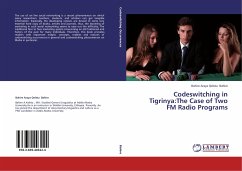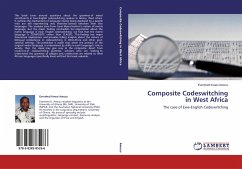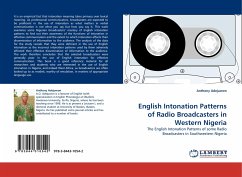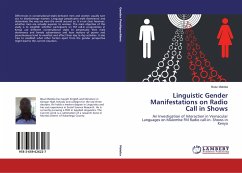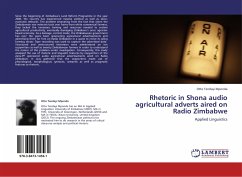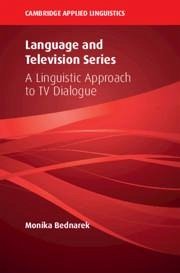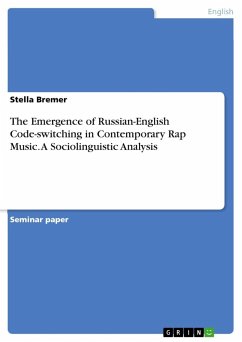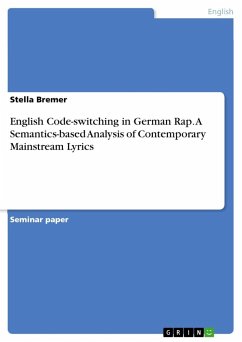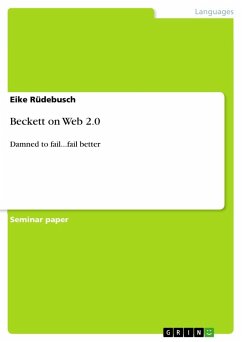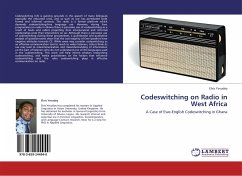
Codeswitching on Radio in West Africa
A Case of Ewe-English Codeswitching in Ghana
Versandkostenfrei!
Versandfertig in 6-10 Tagen
32,99 €
inkl. MwSt.

PAYBACK Punkte
16 °P sammeln!
Codeswitching (CS) is gaining grounds in the speech of many bilinguals especially the educated ones, and as such its use has permeated both formal and informal contexts. The radio is a formal platform which demands codeswitching-free language use. However, during Ewe programmes on radio in Ghana there is pervasive use of codeswitching as a result of hosts and callers projecting their interpersonal and informal relationships onto their interactions on air. Although there is pervasive use of codeswitching during these programmes, a quantitative and qualitative analysis of questionnaires show tha...
Codeswitching (CS) is gaining grounds in the speech of many bilinguals especially the educated ones, and as such its use has permeated both formal and informal contexts. The radio is a formal platform which demands codeswitching-free language use. However, during Ewe programmes on radio in Ghana there is pervasive use of codeswitching as a result of hosts and callers projecting their interpersonal and informal relationships onto their interactions on air. Although there is pervasive use of codeswitching during these programmes, a quantitative and qualitative analysis of questionnaires show that the vast majority of Ewe speakers have negative attitudes towards CS. While some may consider codeswitching as an effective communication tool to reach to wider listeners, others think its use may lead to miscommunication and misunderstanding of information on the part of listeners who do not understand one of the languages used in the codeswitching. This work will help inform scholars researching codeswitching, and media practitioners on the factors that influence codeswitching and the roles codeswitching plays in effective communication on radio.



